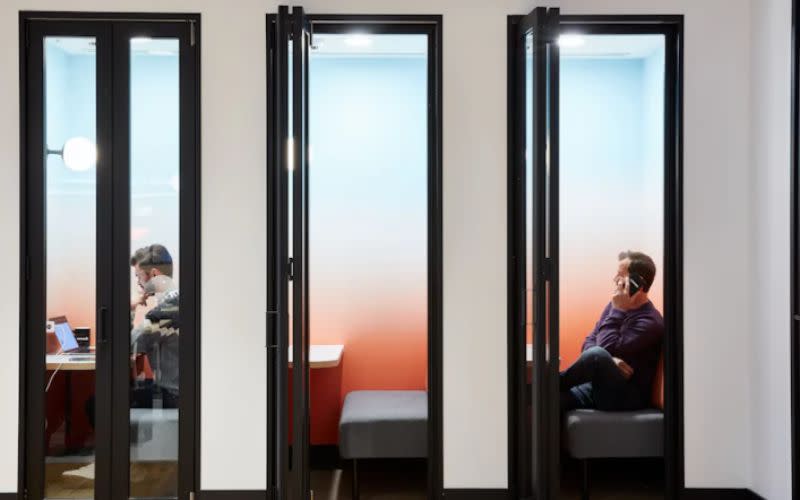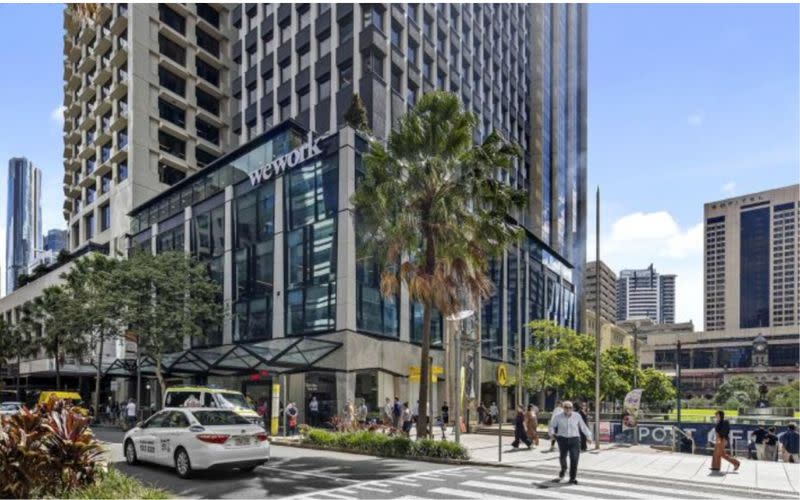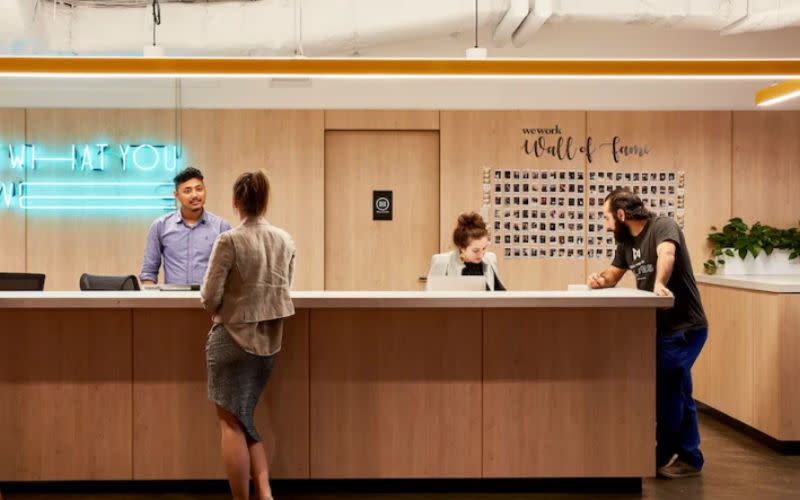Resources
Newsletter
Stay up to date and with the latest news, projects, deals and features.
Subscribe
Some of Australia’s biggest landlords are anxiously eyeing the news out of New York city this week where the ousted co-founder of WeWork is looking to buy back the troubled office-sharing company.
WeWork, the flexible office space giant, runs 15 sites in four states and counts tens of thousands of square metres at some of the country’s best CBD addresses.
The owners of those buildings include ASX-listed Lendlease, Dexus and GPT Group.
To date, WeWork Australia has handed back the keys to at least four sites—one each in Sydney, Melbourne, Perth and Brisbane.
Late last year, in what is believed to have been a negotiated exit, WeWork ended its lease for about 4600sq m across the first four floors of 260 Queen Street, in Brisbane’s city centre.
The vacated four floors were immediately picked up by another provider—Workspace 365—which moved in on December 1.
A month earlier, the beleaguered New York-listed company, once valued at $47 billion on the private market, filed for Chapter 11 bankruptcy.
Then this week, and five years after he was ousted from the company he founded, it was reported Adam Neumann is trying to buy back WeWork.

Lawyers representing Neumann’s new venture, Flow Global, sent a letter to WeWork advisers revealing he had been trying for months to negotiate to buy the company or provide it with debt financing.
But Neumann’s lawyers said WeWork had had a “lack of engagement” and had not provided him the information needed to make an offer.
In a prepared statement, WeWork said it received expressions of interest from external parties on a regular basis.
“We and our advisors always review those approaches with a view to acting in the best interest of the company,” it said.
Flexible Workspace Australia—the industry association for coworking and flexible workspace providers—says the market is strong, but WeWork remains an industry leader, both globally and in Australia.
JLL brokered a 10-year lease of 4480sq m for WeWork in the Riverside Centre, at 123 Eagle Street in Brisbane, in 2019—one of three sites remaining in and on the verge of the Queensland capital. The building is owned by the real estate investment trust, GPT Group.
“What I can tell you is they have a lease and they are paying the rent,” JLL’s head of office leasing in Queensland, James Montague, told The Urban Developer, “so, there’s no change to the status quo”.
But Montague agrees landlords in four states may be concerned.

“They (WeWork) have approached owners across the country to renegotiate existing lease contracts, is my understanding,” Montague said.
“And that conversation has happened with every landlord in an attempt to improve profitability by reducing operating expenses.”
He said the level of concern depended in which market the building sat.
“The Brisbane market is very strong and the Riverside Centre is nearly full,” Montague said.
“If WeWork were to hand back a floor, as long as the financial metrics around what that hand-back looked like, it wouldn’t be a dire outcome because the market should be able to find a tenant for it.
“But conversely, if you’re in a market like Melbourne, which has got the high vacancy rates and say, buildings in sub-market locations, you’d be pretty stressed out if you’ve got exposure to WeWork in your asset.”
Brad Krauskopf is co-chair of Flexible Workspace Australia as well as chief executive of workspace provider Hub Australia.
“Melbourne has recovered more slowly than the rest of the cities and we see that through the data we’ve got at Flexible Workspace Australia,” Krauskopf said.

“We also see it through data we collect at Hub Australia,” he said, “but generally speaking, the flexible workspace sector is actually performing very well, and we expect Melbourne to recover over the first quarter or the first half of this calendar year.”
Of the 15 locations it now counts, WeWork has three sites in Melbourne. One of the first to open was in the heritage-listed tower at 401 Collins Street, owned by Impact Investments. WeWork vacated that building towards the end of 2021.
It has also exited big spaces at 50 Carrington Street, in Sydney, as well as 45 Francis Street in Perth. That building, across the railway line in Northbridge, is owned by the Centuria Capital platform.
“There is a flexible workspace market and it’s a relatively mature one,” Montague said.
“But they (WeWork) have been actively reducing their footprint, handing space back across the country.”
And in an ominous final sentence to its short statement out of New York on Tuesday, WeWork indicated that may not be over.
“We believe that the work we are currently doing—addressing our unsustainable rent expenses and restructuring our business—will ensure WeWork is best positioned as an independent, valuable, financially-strong and sustainable company long into the future.”